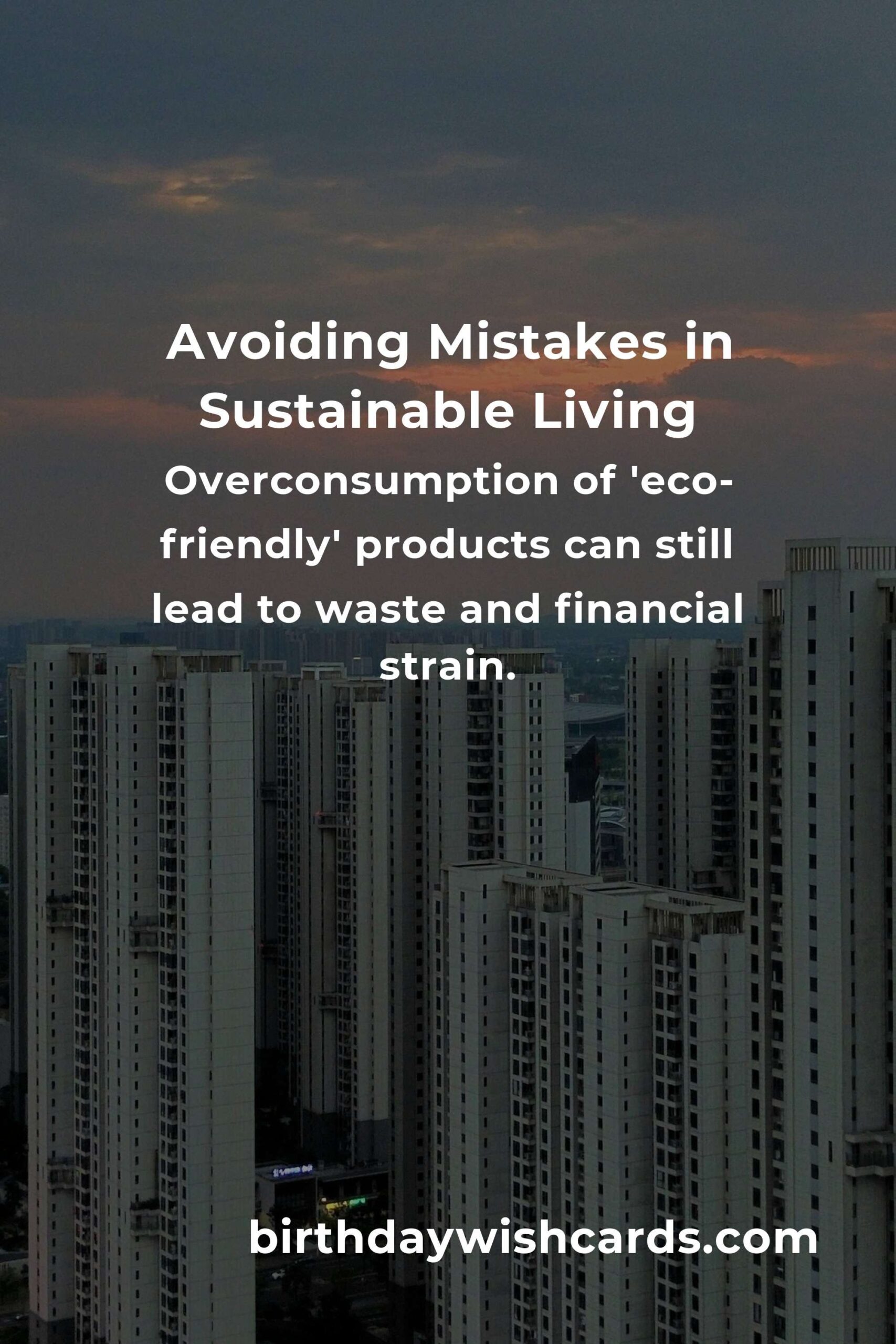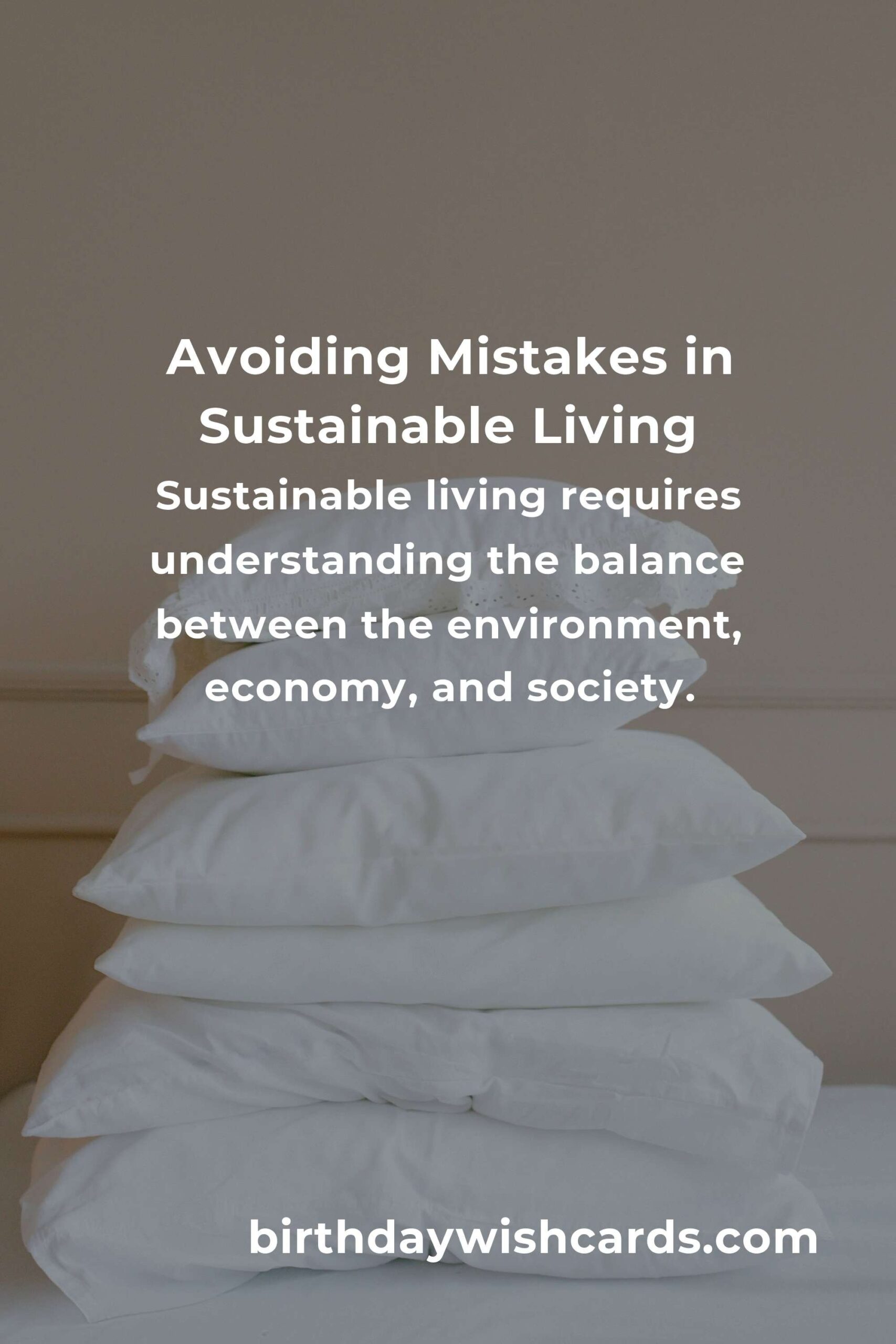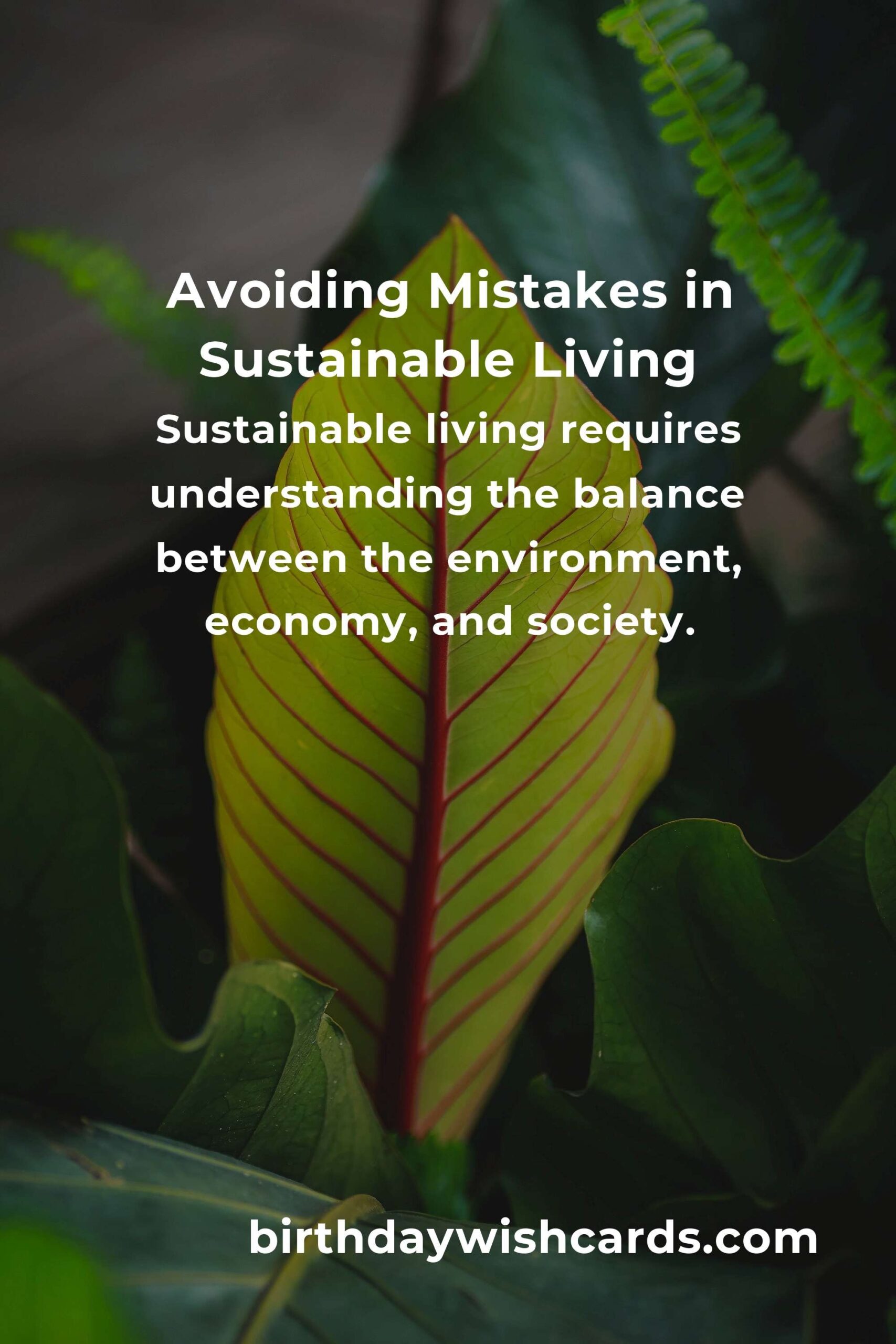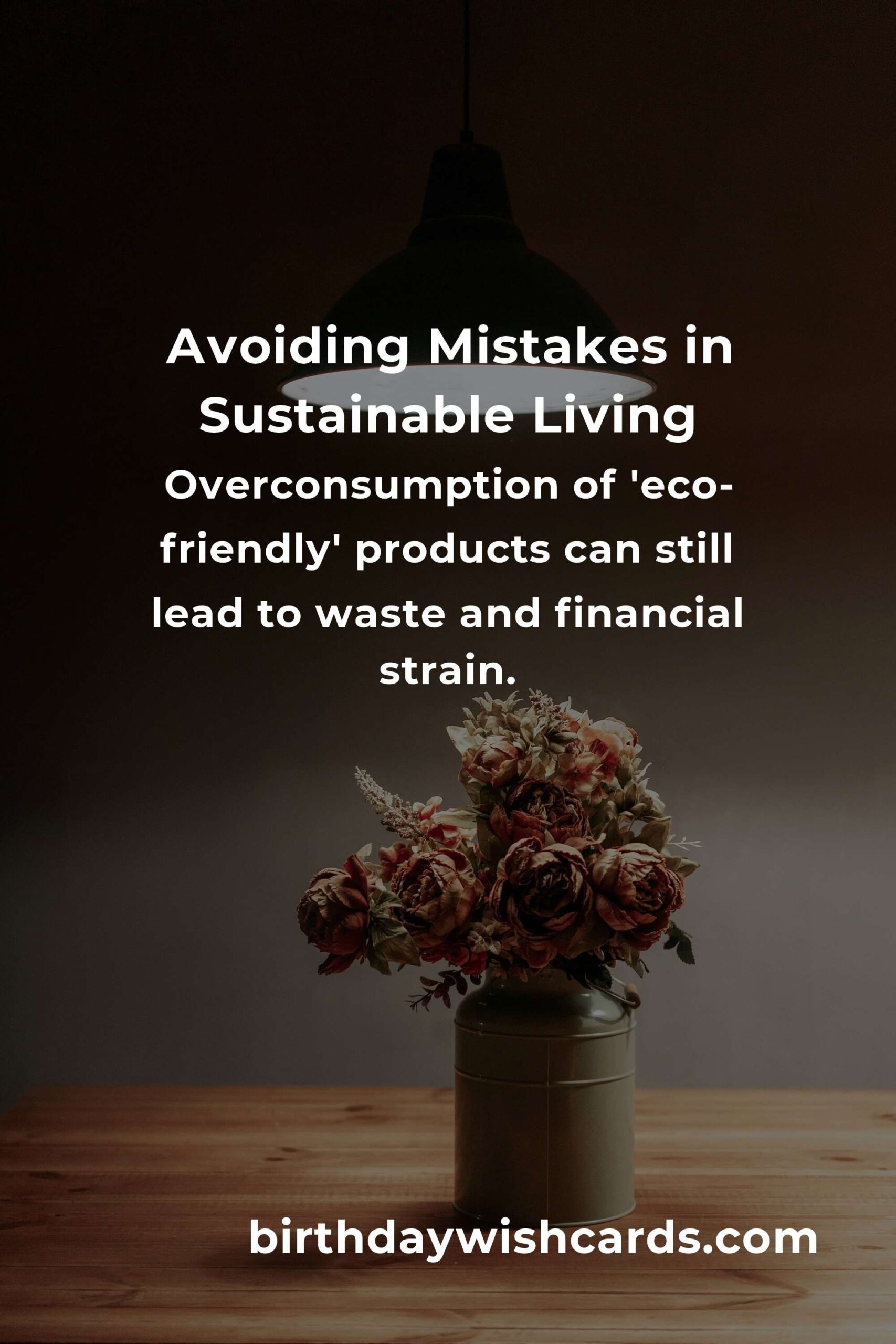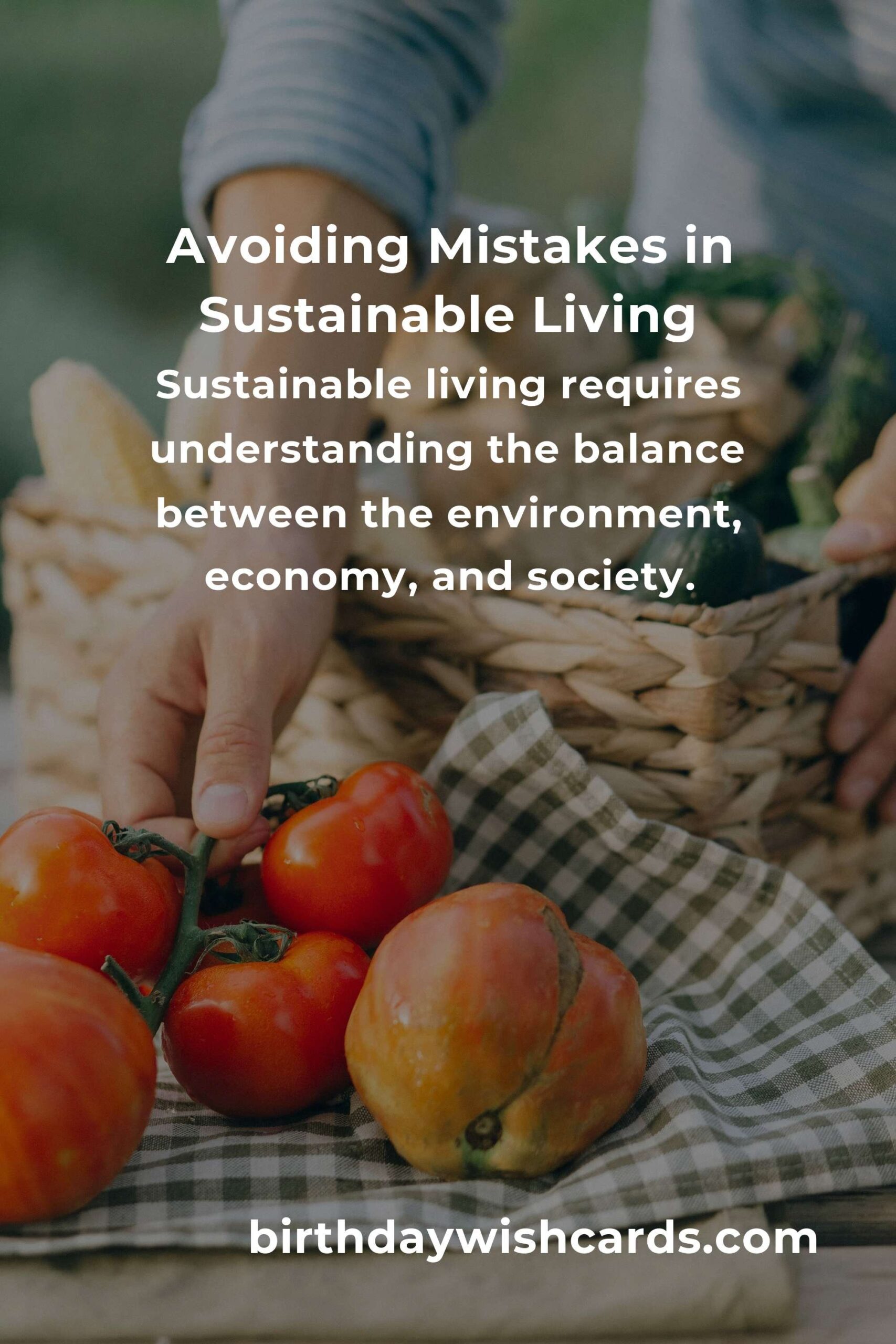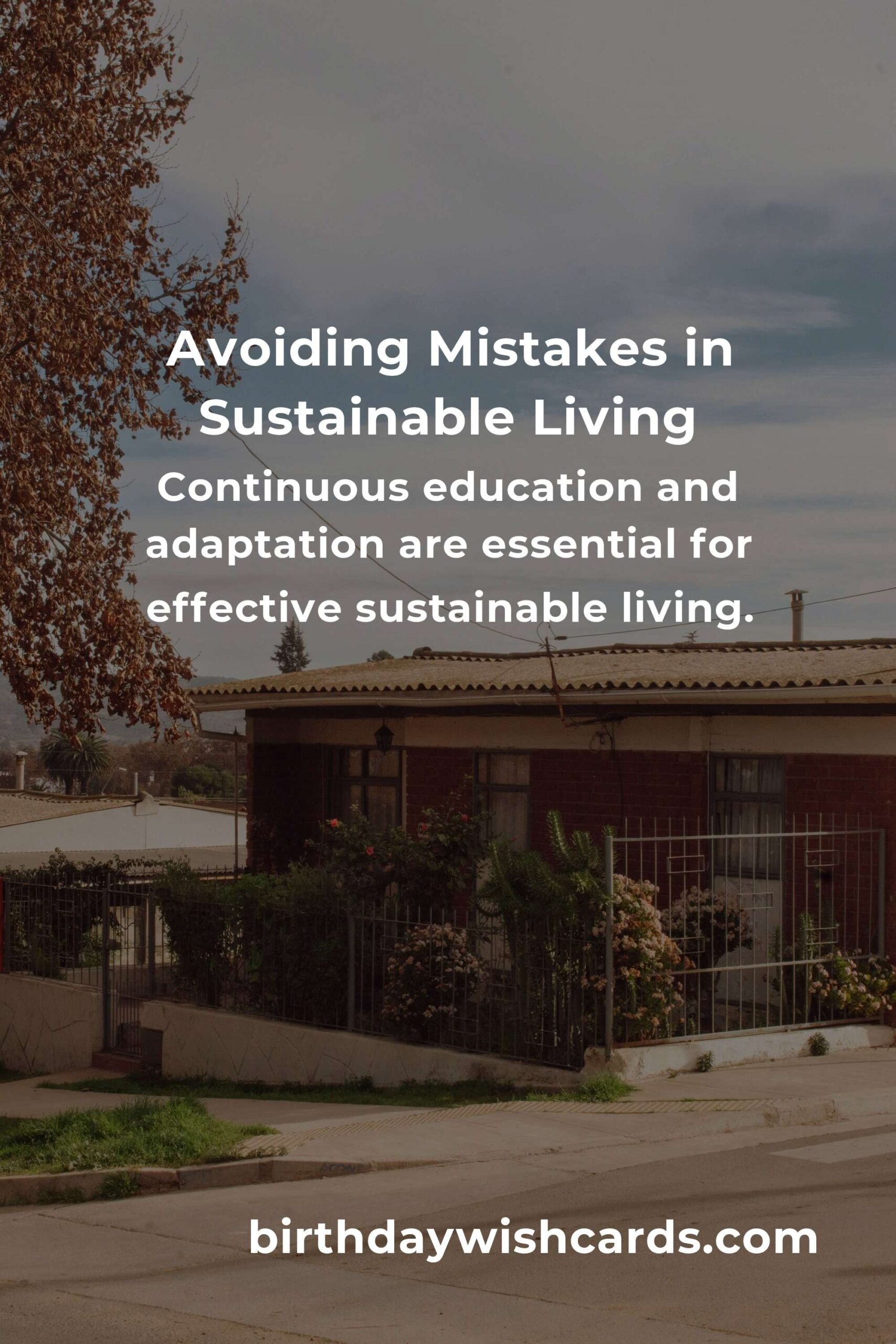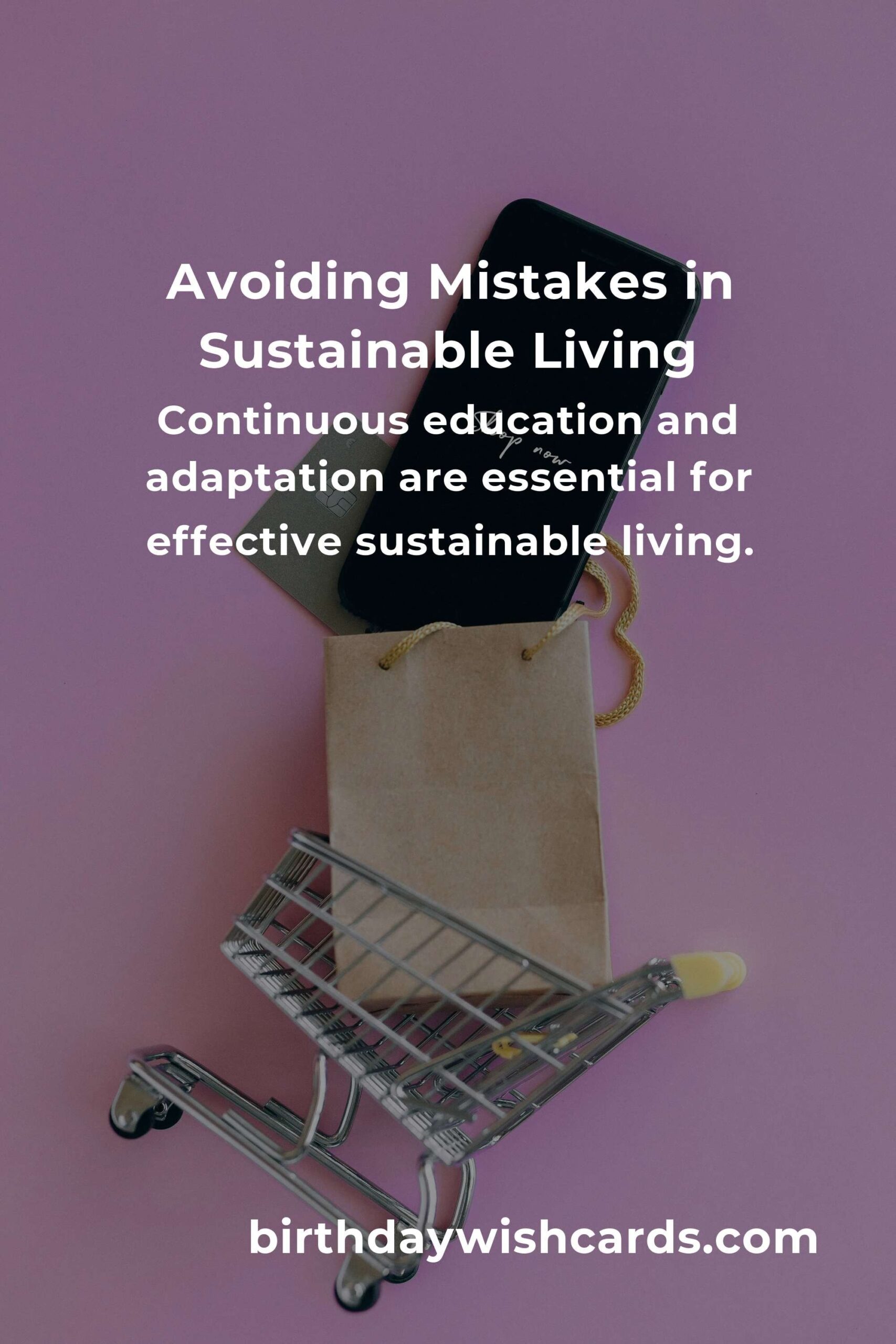
Sustainable living is an essential practice for those who are conscious about reducing their environmental impact. However, as with any lifestyle change, there are common mistakes that individuals can make. Understanding these pitfalls and learning how to avoid them can make your journey towards sustainability more effective and rewarding.
Misunderstanding the Core Principles of Sustainability
One of the most frequent mistakes in sustainable living is misunderstanding its core principles. Sustainability is not just about recycling or reducing waste; it’s about creating a balance between the environment, economy, and society. Many people focus solely on the environmental aspect and neglect the other two, which can lead to ineffective practices.
To avoid this mistake, educate yourself about the broader concept of sustainability. Understand that it involves making choices that are not only environmentally friendly but also economically viable and socially equitable. This holistic approach will ensure that your efforts contribute to a more sustainable world.
Overconsumption of ‘Eco-Friendly’ Products
Another common mistake is the overconsumption of products labeled as ‘eco-friendly’. While these products may have less environmental impact, buying more than you need is still a form of overconsumption. It can also lead to unnecessary waste and financial strain.
To avoid this, focus on reducing your overall consumption. Before purchasing a new product, ask yourself if it is truly necessary. Embrace the principles of minimalism and prioritize quality over quantity. This approach will help you make more sustainable choices and reduce your environmental footprint.
Ignoring Energy Efficiency
Many individuals overlook the importance of energy efficiency in sustainable living. Simple actions like leaving lights on when not needed or using outdated appliances can significantly increase your energy consumption and, consequently, your carbon footprint.
To avoid this, invest in energy-efficient appliances and adopt habits that reduce energy use. Turn off lights and electronics when not in use, and consider using renewable energy sources, like solar panels, to power your home. These steps can greatly decrease your energy consumption and contribute to a more sustainable lifestyle.
Not Considering the Local Impact
Often, sustainable living efforts are focused on global issues without considering local impacts. It is essential to understand how your actions affect your immediate environment and community.
Engage with local sustainability initiatives and support local businesses and farms. This not only reduces the carbon footprint associated with transportation but also strengthens your community’s economy. By focusing on local impact, you can make a significant difference in your community and inspire others to do the same.
Neglecting Continuous Education and Adaptation
Sustainable living is a continuous journey, not a one-time change. Many people stop educating themselves once they adopt a few sustainable practices, which can lead to stagnation.
To avoid this, commit to lifelong learning about sustainability. Stay informed about new practices, technologies, and policies that can help you live more sustainably. Adapt your lifestyle as new information becomes available, and be open to change.
Conclusion
By understanding and avoiding these common mistakes, you can make your sustainable living efforts more effective. Remember that sustainability is a holistic approach that involves continuous learning and adaptation. By focusing on reducing consumption, improving energy efficiency, considering local impacts, and maintaining a commitment to education, you can make a significant difference in your personal life and the broader world.
Sustainable living requires understanding the balance between the environment, economy, and society. Overconsumption of ‘eco-friendly’ products can still lead to waste and financial strain. Energy efficiency is crucial to reducing your carbon footprint. Local impacts should be considered to strengthen community sustainability. Continuous education and adaptation are essential for effective sustainable living.
#SustainableLiving #EcoFriendly #EnergyEfficiency #LocalImpact #ContinuousLearning


